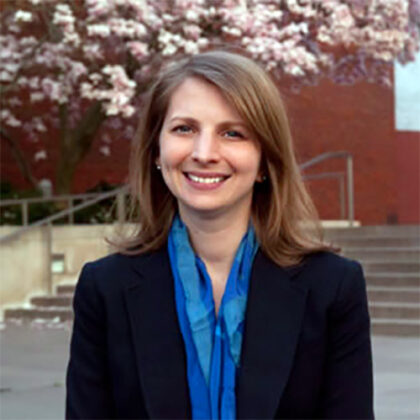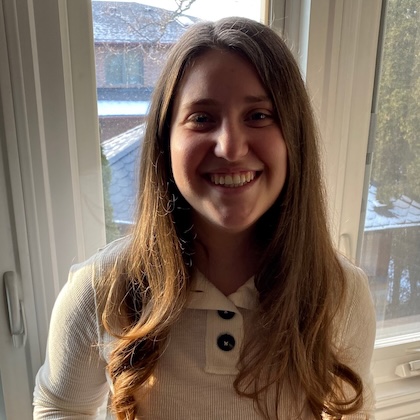Lake Doctoral Dissertation Fellowship
This one-year grant is given annually to support a graduate student whose research engages issues at the intersection of faith and giving. It is intended to support the final year of dissertation writing for a doctoral candidate at a U.S. graduate school.
Scope of research
This fellowship is designed for research on the expansive relationship between faith and giving. Few scholars may see their work at this specific intersection, but we define faith and giving broadly. Faith may include Western and Eastern religions, spirituality or spiritual practices, emerging belief systems, and beyond. Giving includes philanthropy, volunteering, prosocial behaviors, informal giving such as mutual aid, and more.
Required criteria for applicants
- Be a candidate for a Ph.D. degree at a graduate school in the United States.
- Fulfill all pre-dissertation requirements by December 31 of the year applying, including approval of the dissertation proposal with the expectation that the dissertation will be completed no later than July of the year following the fellowship grant year.
- Must not have received a similar grant or fellowship for the writing of the dissertation. Fellows may not accept other awards that provide similar benefits in the same academic year. We anticipate that with funding from Lake Institute, you will be able to complete and defend your dissertation during the fellowship year. If you are receiving a full stipend from your school, we ask that you bank or postpone it to accept the Lake Fellowship. Smaller awards and/or those involving limited opportunities to teach may be permitted, at the discretion of the Research Advisory Committee of Lake Institute on Faith & Giving.
- Submit application and other requested documents by January 16, 2026.
Fellowship benefits
- Receive three award payments totaling $30,000
- Be invited to special research-focused Lake Institute engagements
- Have the opportunity to take advantage of Lake Institute’s resources and expertise
- Share your research through our website and citations in our seminars
How to apply
Application deadline: January 16, 2026
1. Fill out the Application Form. You will need the following information in order to complete this form:
- Applicant: name, email, phone number, address
- School: name, address
- Dissertation Committee Chairperson: name, email, phone, address
- A one-three sentence summary of your fellowship proposal
2. Upload the required documents through the Application Form:
- Resume/CV
- Fellowship proposal: In your proposal of no more than seven pages (double-spaced, 12-point font), articulate the thesis of your dissertation, summarizing the argument, methodology, and current findings. In addition, discuss the relevance and contribution of your topic for the understanding of an important question(s) or issue(s) related to religion and philanthropy/faith and giving. Please write this executive summary so that scholars outside of your discipline would not have difficulty comprehending your proposal.
- Copy of the approved dissertation proposal.
- A selected bibliography: Compile a curated bibliography (2-3 pages, double-spaced) indicating the major theoretical, practical and critical works that bear on your dissertation. This means you should include those works that most clearly demonstrate your command of the scholarship necessary to write the proposed dissertation. In most cases this will already be part of your proposal.
- A timetable: Detailing your chapter outline, your progress to date, and your schedule for the fellowship year. It should be no longer than one page, double-spaced.
- Official or Unofficial Transcript: From the graduate school which will award the Ph.D. degree. Official Transcripts can be sent to LakeInstitute@iu.edu. Unofficial transcripts must be uploaded to the application form.
3. Request two letters of recommendation: One from your dissertation director and another from a faculty member familiar with your work. Share this upload link with recommenders to upload letters.
All application materials (application form, required documents, and letters of recommendation) must be received by January 16, 2026.

“The Lake Doctoral Dissertation Fellowship was a tremendous boost to my studies. Their financial support allowed me to do field research in Africa and write a much stronger dissertation than I otherwise could have done. And my association with the institute has introduced me to a new network of practitioners and scholars. I’m very grateful for the Lake Institute’s support of my work.”
2025 Lake Doctoral Dissertation Fellowship Recipient

Melina Economou is a PhD Candidate in Anthropology at the University of California San Diego. She earned a Master of Arts in Anthropology from the University of California San Diego, and a Bachelor of Science in Biological Anthropology and History from the University of Toronto. Her dissertation project, ‘If we don’t meet here again, we’ll meet in the great beyond:’ End of Life Care and Volunteerism in Canada, explores how people with life-limiting prognoses can experience dying as a quotidian reality – sometimes for weeks, months, or even years, they continue living while dying in what becomes a unique time and space that is open-ended and liminal. People with life-limiting illnesses continue to form social relationships with hospice volunteers, make decisions about their care, negotiate affective changes concerning hope, dignity, grace, and faith, and contemplate spiritual and religious beliefs about dying and death.
